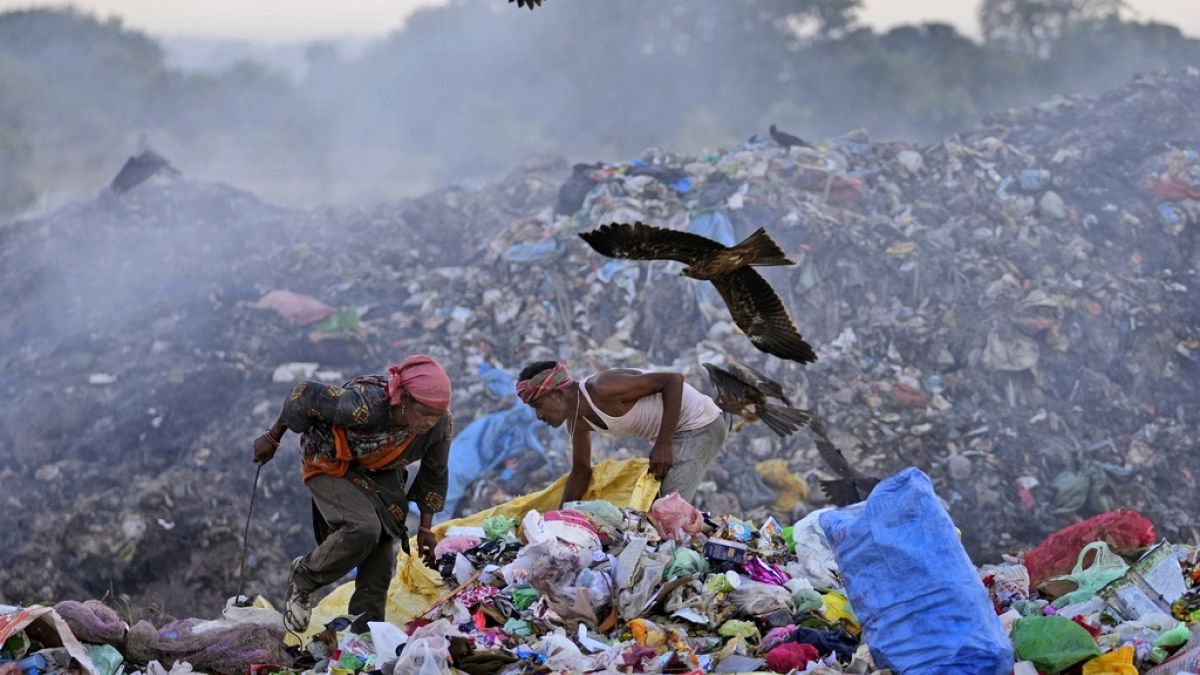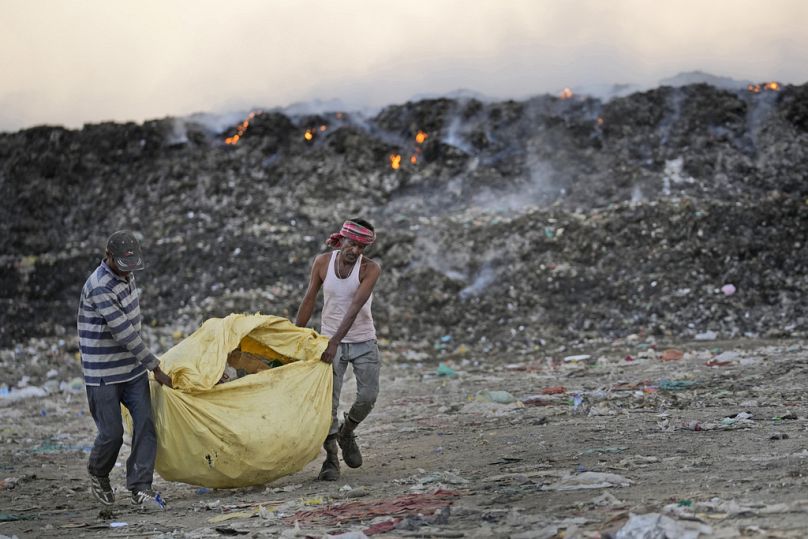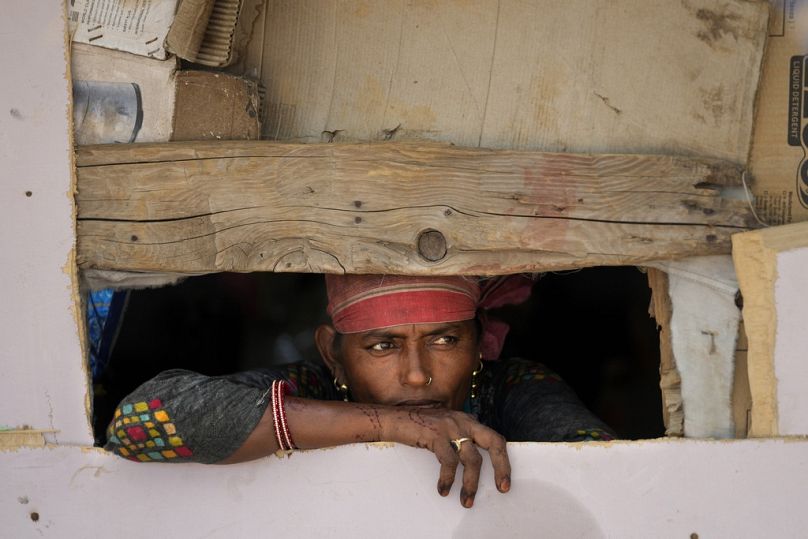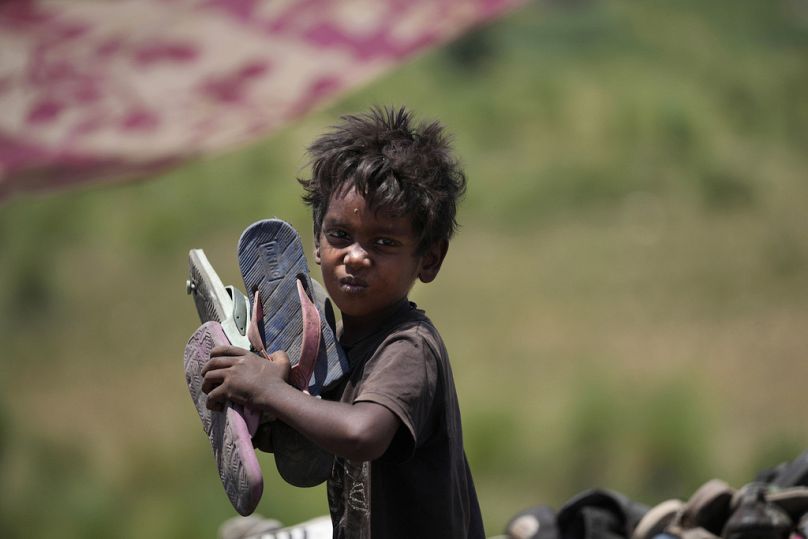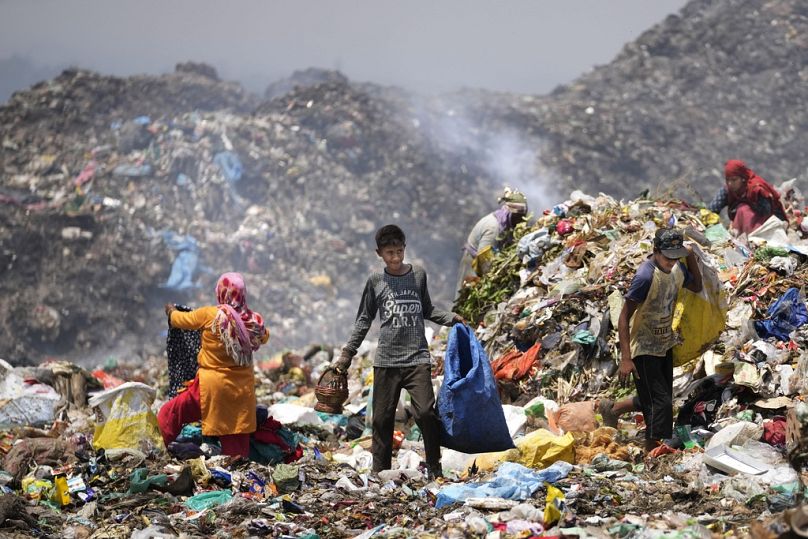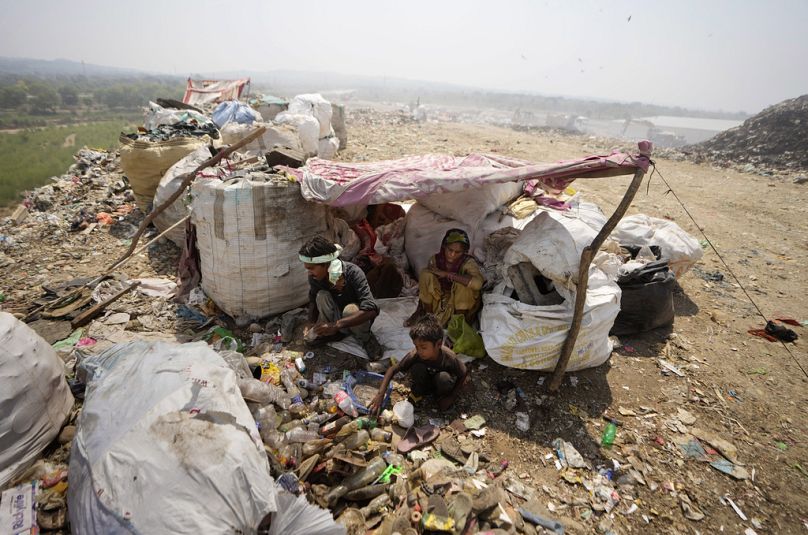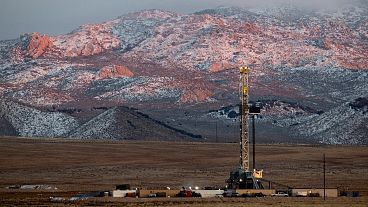For millions of Indians, the extreme heat of the summer makes their daily lives even harder.
The putrid smell of burning rubbish wafts for miles from the landfill on the outskirts of the Indian city of Jammu - a potentially toxic miasma fed by the waste generated by some 740,000 people.
Some citizens, though, have no choice but to ignore both the fumes and suffocating heat to sort through the rubbish. They’re forced to try to find anything at all of value to sell in order to earn, at best, the equivalent of €3.70 a day.
“If we don’t do this, we don’t get any food to eat," 65-year-old Usmaan Shekh explains. “We try to take a break for a few minutes when it gets too hot, but mostly we just continue till we can't.”
Shekh and his family are among the estimated 1.5 to four million people who scratch out a living searching through India’s waste - and climate change is making a hazardous job more dangerous than ever.
In Jammu in the Himalayan foothills, temperatures this summer have frequently topped a punishing 43°C.
At least one person who died in northern India's recent heat wave was identified as a garbage picker.
How dangerous are India’s landfills for those forced to work nearby?
In landfills, the rising heat of summer increases emissions of gases such as methane and carbon dioxide, which can be dangerous to breathe at landfill levels, due to depleted oxygen.
To make matters worse, almost all landfill fires come in summer - and they can burn for days.
India generates at least 62 billion kilograms of waste annually and some of its landfills - like the Ghaziabad site outside of New Delhi - are literal mountains of garbage.
While a 2016 law made it mandatory to segregate waste so that hazardous material doesn't make its way to landfills, the law has been poorly enforced - adding to the risks for waste pickers.
Garbage picking is already dangerous: climate change exacerbates that
“Since they mostly just use their hands, they are already contaminated by touching everything from diapers to diabetes syringes,” says Bharati Chaturvedi, founder of the New Delhi-based Chintan Environmental Research and Action Group.
Chaturvedi, who has worked with waste pickers for more than two decades, says extreme heat has added new risks for waste pickers who are already victims of social discrimination and appalling work conditions.
“It’s been a terrible, terrible, terrible year,” she says, “They already expect to suffer from the heat and that gives them a lot of anxiety, because they don’t know if they’ll make it, if they’ll survive it [the summer].”
“The most catastrophic thing” - why this year’s heat has been a disaster for garbage pickers
Chaturvedi adds that this year’s heat has “been the most catastrophic thing one could imagine”.
“It’s really very sad to look at how the poor are trying to live somehow, just take their bodies and try to reach the end of this heat wave in some form of being intact.”
Heat planning and public health experts say that people who are forced to work outdoors are at most risk due to prolonged heat exposure.
Heatstroke, cardiovascular and chronic kidney diseases are some of the risks from working in such conditions.
Waste pickers "are among the most vulnerable and highly exposed to heat”, says Abhiyant Tiwari, who leads the climate resilience team at the Natural Resources Defence Council’s India programme.
The heat appears to be making many of their lives even harder.
Why some Indian garbage pickers are avoiding eating to try to survive
In New Delhi, some people who work the capital city's estimated 4.2 billion annual kilograms of garbage have cut back from two meals a day to just one.
"They are trying to avoid work because of the heat, since if they go to work they end up spending more at the hospital than for their food,” says Ruksana Begum, a 41-year-old waste picker at the Bhalswa landfill in the city.
Tiwari and Chaturvedi both emphasise the importance of giving waste pickers access to a regular water supply, shade, or a relatively cool building near the landfills.
They should also be encouraged to avoid working at high heat and given prompt medical care when they need it, the experts say.
It’s not always so straightforward, though.
Translating heat policy into practical action is a problem
While Tiwari says India has taken significant steps to devise heat action plans, the reality of implementing them across the country is a significant challenge.
“As a society, we have a responsibility to protect them [garbage pickers],” Tiwari says, suggesting people could offer them water if they’re standing outside people’s homes, rather than asking them to leave.
Geeta Devi, a 55-year-old garbage picker also at the Bhalswa landfill in New Delhi, says when she feels dizzy in the heat she takes shelter and sometimes someone gives her water or food.
But, no matter how she feels, she has to work to earn the 150-200 rupees (about €1.65 to €2.25) per day that puts food on the table for her children.
“It is difficult to do my job because of the heat - but I have no other job,” she says.












